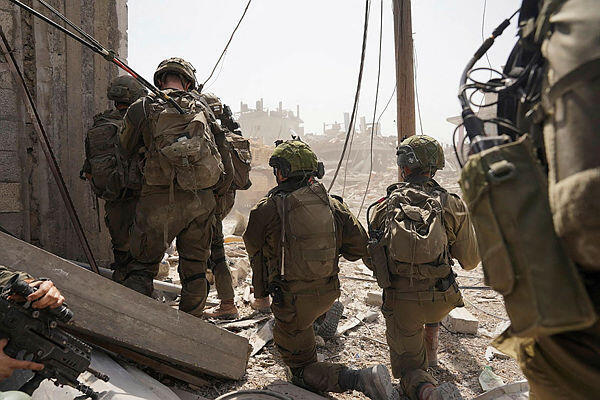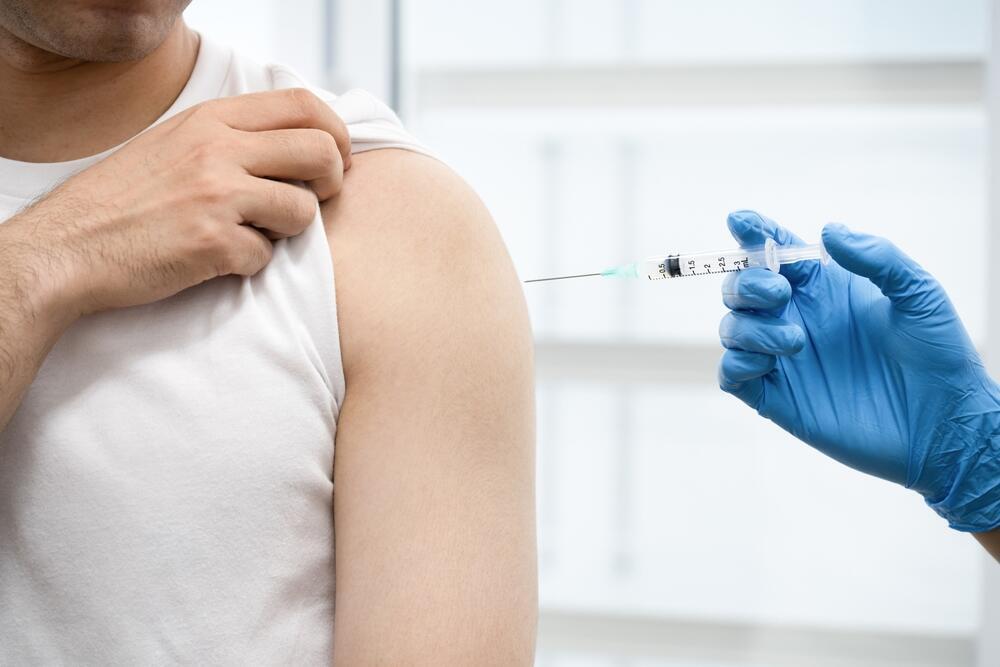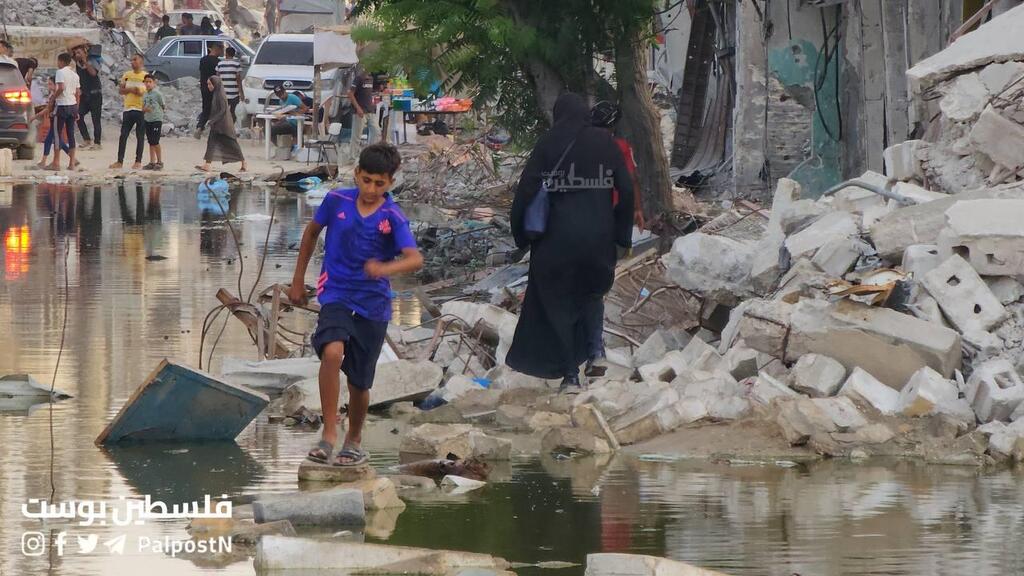Getting your Trinity Audio player ready...
Following the discovery of poliovirus traces in Gaza Strip sewage and a request from the Health Ministry, the IDF Medical Corps began vaccinating combat soldiers and support staff Sunday. Medical teams stationed with IDF forces have also been instructed to be vigilant for flu-like symptoms that could indicate polio infection.
The IDF emphasizes that there is no evidence of a polio epidemic among Gaza residents, and approximately 95% of soldiers were vaccinated in childhood. This additional vaccination campaign aims to further reduce the already low risk of transmission among soldiers, as the virus can, in rare cases, cause paralysis.
The Technology and Logistics Directorate will conduct the operation within Israeli territories before forces enter the Gaza Strip. Vaccinations will be administered not only to combat soldiers but also to combat supporters and all IDF personnel stationed in Gaza.
Soldiers who do not wish to be vaccinated will not be forced and will not face sanctions. The vaccine given will be the IPV (inactivated polio vaccine), part of the pentavalent vaccine currently administered to infants in several doses at 2, 4, 6 and 12 months of age.
This initiative follows the Health Ministry's announcement last Thursday of high concentrations of the poliovirus found in Gaza's sewage system. The presence of the virus in the sewage system indicates active disease but not necessarily an outbreak. The IDF says that monitoring efforts will continue in the coming weeks to fully understand the extent of the phenomenon.
In a letter sent last Thursday by Prof. Zohar Mor, acting head of the epidemiology department at the Health Ministry, to Brigadier General Dr. Zivan Aviad-Bar, the incoming chief medical officer, the IDF was instructed "to ensure that all soldiers are vaccinated against polio. It is recommended that even those vaccinated in the routine immunization program receive a booster dose due to potential exposure risk, especially in field conditions. Besides protecting the soldiers themselves, it is crucial to prevent them from getting infected and subsequently infecting others, as the virus is excreted in large quantities through the intestines."
The Health Ministry's directive to the IDF also said that "the vaccine is recommended for all combat teams currently in Gaza or those about to enter the area. There is no need to vaccinate soldiers who were previously in Gaza."
The IDF is also working to introduce additional vaccines into the Gaza population. Following the Health Ministry update, the IDF conducted sampling tests in various areas of Gaza where traces of the poliovirus were found in drinking water or through contact with contaminated water. Based on the findings, it was decided by the IDF, in coordination with the Health Ministry, to vaccinate ground forces against the virus to protect the health of soldiers and Israeli citizens. The vaccinations will be carried out gradually as forces are being rotated. Additionally, forces have been instructed to maintain personal hygiene.
In 2022, the Health Ministry recommended vaccination for those who had not been vaccinated and a booster for those who had to further reduce the risk of infection after a localized polio outbreak had been detected in Israel.
The IDF said that there is no vaccine shortage, and it will be provided to all soldiers entering Gaza who desire it. The IDF also notes that the side effect profile of the known vaccine is minor.
Alongside the vaccination campaign for soldiers, the IDF announced that it is collaborating with various organizations to introduce vaccines intended for the Gaza population. Since the beginning of the conflict, approximately 300,000 polio vaccines have been introduced into Gaza in collaboration with international organizations, sufficient for over a million Gaza residents. It was reported that Major General Rassan Alian, the Coordinator of Government Activities in the Territories, is in contact with the international community to facilitate the entry of additional polio vaccine doses for Gaza residents.
Last week, Ynet reported that Israel is initiating a comprehensive repair of the sanitation systems in Gaza: renovating sewage lines and treatment plants that were damaged, causing sewage overflows and giant puddles. Additionally, damaged power lines will be restored.
This sanitation project will be allowed by the IDF primarily in the displaced areas in Al Mawasi in the southern Gaza Strip. "Currently, most of Gaza's residents, about 1.9 million people, live in the coastal area from the Tel Al-Sultan neighborhood of Rafah to Deir Al-Balah, an immense area of massive tent cities," security officials warned. "Epidemics could easily break out from there due to sanitation issues. There were places where sewage puddles were dried up, but this is a health hazard for us as well.
"The Khan Younis municipality has already started discharging sewage into the sea, which could lead to the closure of Zikim and Ashkelon beaches," the officials added.
"It's a miracle that no diseases have spread there until now, and if that happens and everything falls apart, the world, through a UN Security Council resolution, might stop the conflict immediately. There are piles of garbage alongside running water in the displaced areas. We will bring in equipment, pumps and local contractors to address the issue."





